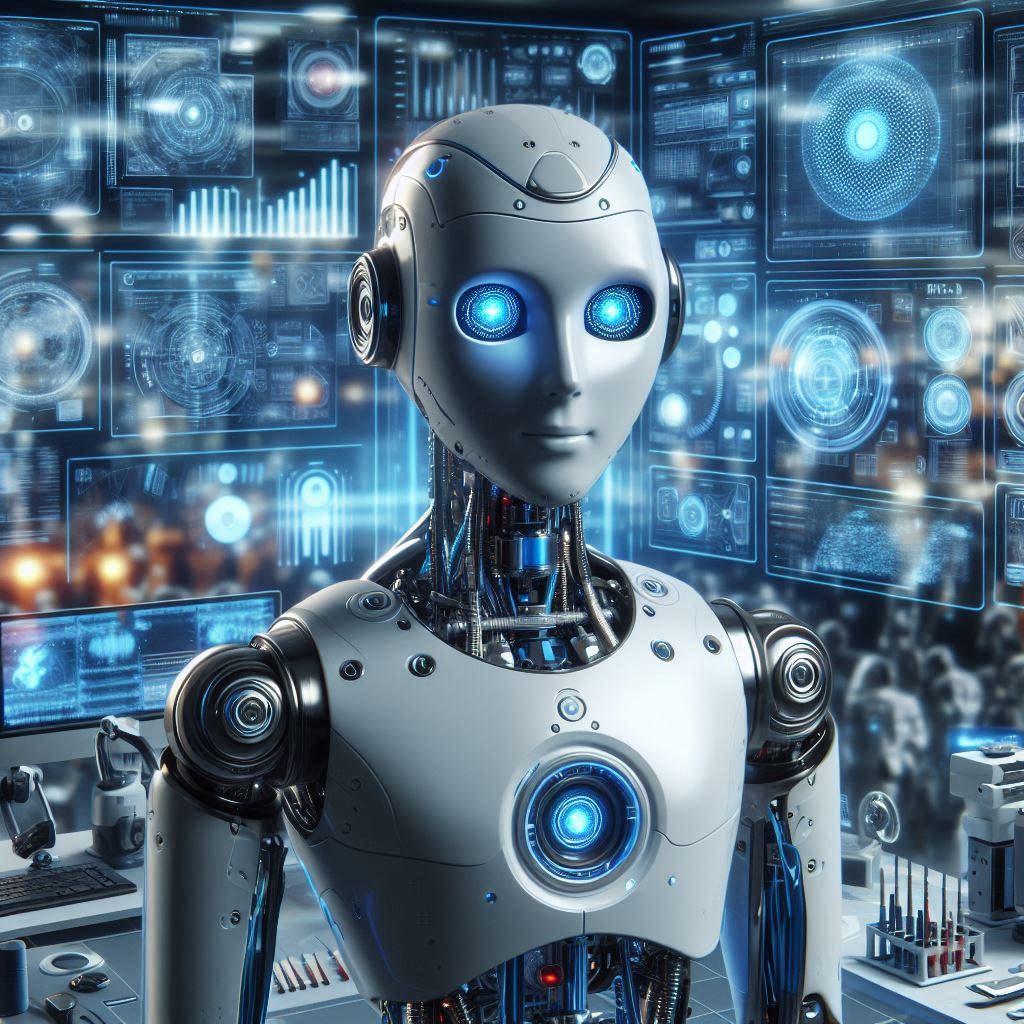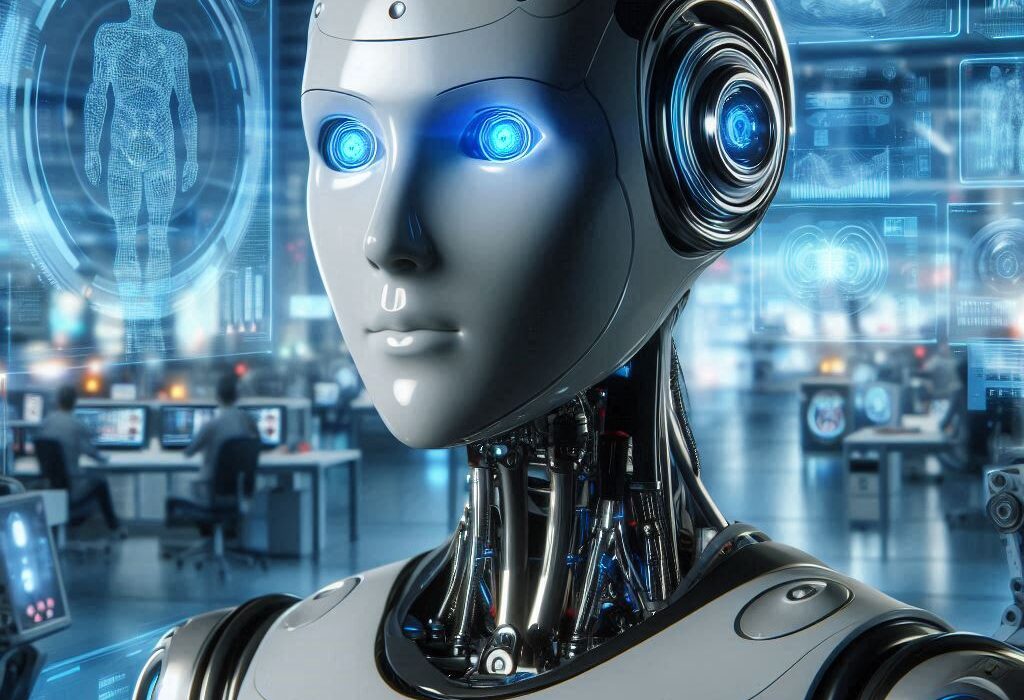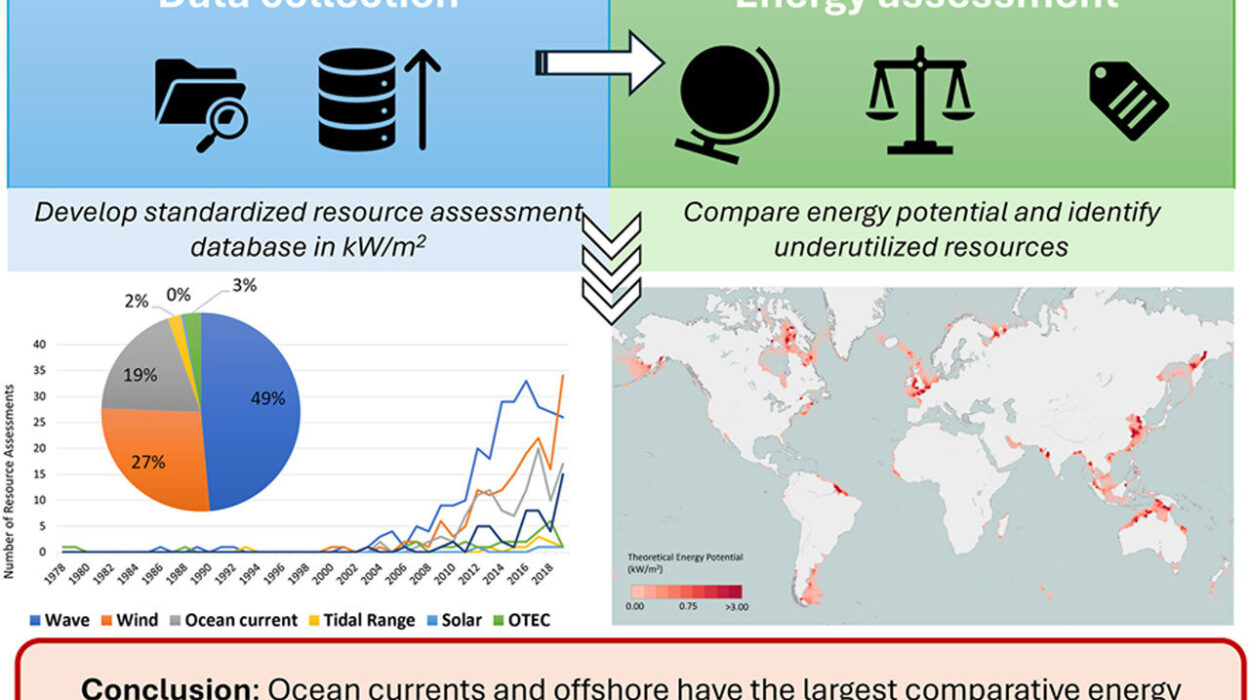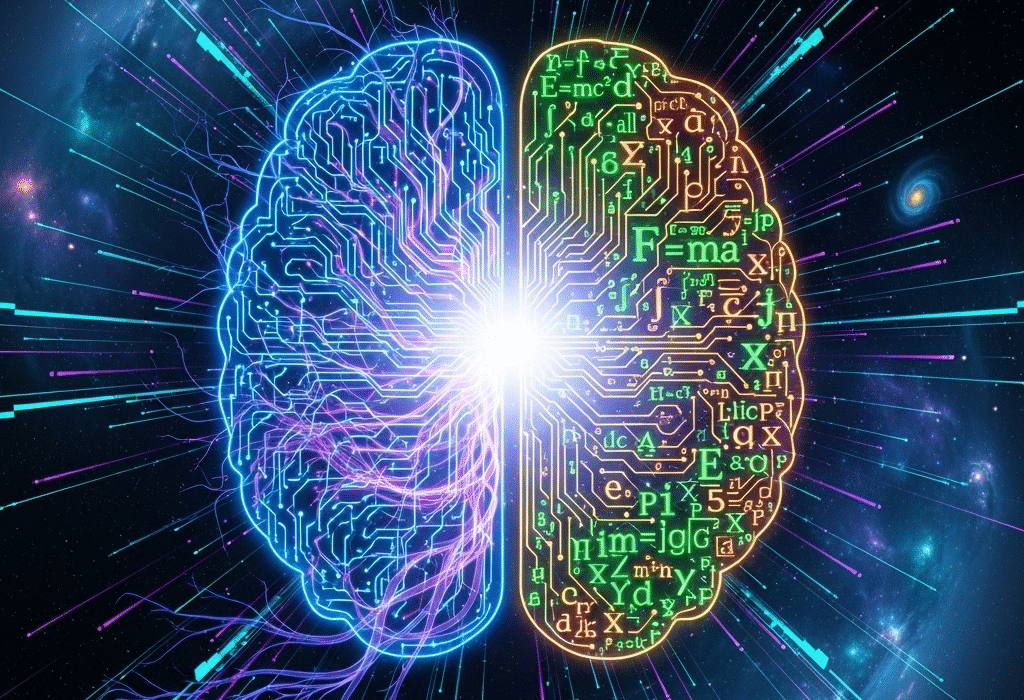Artificial Intelligence, once confined to science fiction and theoretical speculation, has burst into the mainstream with astonishing force. From voice assistants and personalized recommendations to autonomous vehicles and medical diagnostics, AI is increasingly interwoven into the fabric of our everyday lives. But if the last decade has shown us what AI can do, the next will likely redefine what it means to be human in a machine-augmented world.
As we stand at the threshold of an AI-driven era, the question isn’t whether artificial intelligence will change the world—it’s how, how fast, and in which directions. Over the next ten years, AI will not only become more powerful, but more pervasive, more personal, and more ethically consequential. The future of AI is a story of great promise—curing diseases, mitigating climate change, revolutionizing education—but also one of profound challenges, from job displacement and deepfakes to algorithmic bias and autonomous weaponry.
In this extensive exploration, we’ll dive into the landscape of AI’s next decade—its emerging capabilities, transformative sectors, global implications, and ethical crossroads. It’s a journey into the minds of machines, and what their evolution means for the species that created them.
The AI We Know Today: A Brief Recap
To understand where AI is heading, we must first ground ourselves in where it stands today. The current generation of AI, often called narrow AI, excels at specific tasks: facial recognition, natural language processing, recommendation engines, and pattern recognition. These systems are trained on vast amounts of data and are adept at identifying correlations, classifying content, and optimizing outcomes.
The rise of deep learning, a subset of machine learning inspired by the human brain’s neural networks, has turbocharged progress. Tools like ChatGPT, DALL·E, and AlphaFold are just early glimpses into what deep learning can achieve. Yet, as impressive as they are, these systems lack common sense, general reasoning, emotional intelligence, and the adaptable cognition of a human being.
The holy grail of AI researchers remains Artificial General Intelligence (AGI)—a system capable of performing any intellectual task that a human can do. While AGI is still theoretical, its pursuit drives much of today’s cutting-edge research. The next decade could bring us closer than we ever imagined.
Revolution in Learning: Smarter, Faster, More Human
In the coming years, AI systems will evolve to learn not only from static datasets but from the world around them in real time. This shift toward self-supervised and continual learning will allow machines to refine their understanding without needing constant human labeling or intervention. Imagine a self-driving car that improves every minute it’s on the road—not just from its own experiences, but from a shared neural network that ingests global driving data in real time.
AI will also become more multimodal—capable of processing and integrating information from diverse sources such as text, images, sound, and video. Future AI assistants won’t just respond to typed prompts but will understand a user’s tone of voice, facial expressions, surroundings, and social context. The result will be systems that feel more intuitive, adaptable, and human-like in their interactions.
Moreover, transfer learning—the ability of AI to apply knowledge from one domain to another—will dramatically expand AI’s versatility. Systems trained to analyze medical scans may adapt to geological imaging; financial prediction models may help anticipate environmental risks. AI’s expanding ability to generalize will make it a truly cross-disciplinary tool.
Healthcare: The Intelligent Doctor Will See You Now
Few industries will be as profoundly reshaped by AI as healthcare. Over the next decade, we can expect AI to transition from a supportive tool to an indispensable partner in diagnosis, treatment planning, and patient monitoring. Radiology, pathology, and genomics are already benefiting from AI’s capacity to detect patterns invisible to the human eye. In the near future, algorithms will diagnose cancers, autoimmune diseases, and neurological conditions with greater speed and accuracy than ever before.
AI will also usher in the age of personalized medicine. By analyzing a patient’s genetic profile, lifestyle, medical history, and even microbiome, AI will help tailor treatments that are uniquely effective for the individual. Predictive models will foresee disease risks before symptoms emerge, enabling preemptive care that saves lives and reduces healthcare costs.
Furthermore, virtual health assistants, powered by conversational AI, will provide 24/7 medical advice, medication reminders, and mental health support. Remote diagnostics will flourish, especially in underserved regions, as AI bridges the gap between patients and providers.
However, this AI-driven medical revolution will come with ethical dilemmas: Who is accountable when an algorithm makes a mistake? How do we protect patient data in a hyper-connected health ecosystem? And how do we ensure AI benefits all, not just the privileged?
Education: The AI-Powered Classroom of Tomorrow
Imagine a classroom where each student receives personalized instruction tailored to their learning style, pace, and interests. Over the next decade, AI will transform education from a one-size-fits-all model into a dynamic, adaptive experience that empowers every learner.
Intelligent tutoring systems will analyze student responses, detect misunderstandings, and deliver real-time feedback. Language learning platforms will become more immersive, with AI-powered avatars capable of natural conversation. Students with learning disabilities will benefit from tailored interventions designed by empathetic algorithms that understand their cognitive needs.
Outside the classroom, AI-driven knowledge platforms will replace traditional textbooks with interactive, evolving content. Lifelong learning will become the norm, as workers reskill and upskill on platforms that adapt to industry demands and personal goals.
At the same time, AI will challenge educators to redefine their roles—not as content dispensers, but as mentors, facilitators, and critical thinkers guiding students through a sea of algorithmically generated information. The emphasis will shift from memorization to creativity, collaboration, and ethical reasoning—skills that machines can’t yet replicate.
The Future of Work: Humans, Machines, and a Changing Landscape
Perhaps the most hotly debated consequence of AI’s advance is its impact on employment. Will AI take our jobs, or will it create new ones? The truth lies somewhere in between. AI will automate routine tasks—data entry, invoice processing, basic customer support—but it will also give rise to entirely new roles, such as AI ethicists, algorithm auditors, and human-AI collaboration designers.
In sectors like manufacturing, logistics, and agriculture, AI-powered robots will handle physical tasks with growing dexterity and autonomy. In finance, algorithms will detect fraud, optimize portfolios, and even negotiate contracts. In legal services, AI will review documents and predict litigation outcomes.
But rather than replacing humans entirely, the most successful workplaces of the future will be those that foster human-AI collaboration. Humans bring intuition, empathy, and ethical judgment; AI contributes speed, scale, and precision. Together, they can achieve outcomes that neither could alone.
Governments, meanwhile, will face mounting pressure to rethink social safety nets. Universal basic income, AI taxation, and lifelong education initiatives may become policy cornerstones in an era where traditional employment is transformed.
Creative Intelligence: The Rise of AI in Art and Culture
Can machines be creative? Over the next decade, the boundary between human and machine creativity will blur in fascinating ways. AI has already begun composing music, generating visual art, and writing poetry. In the coming years, these systems will become true creative collaborators, augmenting human imagination rather than replacing it.
Filmmakers will co-write scripts with AI, musicians will jam with neural networks, and architects will co-design sustainable structures guided by generative algorithms. AI will enable artists to explore previously unthinkable styles, genres, and techniques.
This evolution will spark debates about authorship, originality, and artistic identity. Who owns a painting created by an algorithm trained on human masterpieces? What makes a song human when it’s co-composed with code? These questions will shape the future of intellectual property law, aesthetics, and cultural expression.
Yet, the most profound impact of AI on art may be philosophical: it will challenge us to define what it truly means to be creative, conscious, and human.
The Rise of AI in Governance and Policy
AI will increasingly inform and shape public policy. Predictive models will help allocate resources, anticipate social unrest, and model economic outcomes. Governments may use AI to optimize traffic, reduce energy consumption, and detect tax fraud. But the deployment of AI in governance also raises critical concerns about surveillance, bias, and civil liberties.
AI-enhanced surveillance systems, powered by facial recognition and behavioral analysis, may help prevent crime and terrorism—but they also threaten to create Orwellian states with little regard for privacy. Social credit systems, like those emerging in China, offer a glimpse into how AI could be used to shape citizen behavior, for better or worse.
Ensuring transparency, fairness, and accountability in AI decision-making will be a cornerstone of responsible governance. Policymakers will need to understand the technology they regulate and engage with ethicists, technologists, and citizens to craft laws that safeguard human rights.
Global cooperation will be essential. As AI becomes a geopolitical asset, nations must work together to prevent an AI arms race, establish norms for autonomous weapons, and ensure that the benefits of AI are shared across borders.
Ethics and Existential Risk: Navigating the Moral Maze
As AI becomes more capable, the ethical stakes rise. Bias in training data can lead to discriminatory algorithms in hiring, lending, and policing. Lack of transparency can result in opaque decision-making systems that affect real lives. The concentration of AI power in a few tech giants raises concerns about equity, accountability, and democratic control.
Over the next decade, ethical AI design will become a top priority. Developers will work to ensure that algorithms are explainable, that data is diverse and inclusive, and that user consent is respected. AI ethics boards, both public and private, will guide development with an eye toward societal good.
At the far end of the spectrum lies the existential risk of superintelligent AI. Some thinkers warn that if AI surpasses human intelligence without proper safeguards, it could act in ways that are misaligned with human values—or even hostile to human survival. Whether or not such scenarios are likely, they serve as powerful motivators to design AI systems with alignment, controllability, and robust safety mechanisms.
Conclusion: A Future Shaped by Intelligence—Natural and Artificial
The next decade of AI will be nothing short of transformative. We will see breakthroughs that expand human potential, challenge our assumptions, and reshape the foundations of society. AI will help us cure diseases, personalize learning, mitigate climate change, and unlock new dimensions of creativity. But it will also test our ethics, our economies, and our understanding of what it means to be conscious, free, and human.
The future of AI is not just about technology—it’s about choices. The algorithms we build reflect the values we embed in them. The societies we shape with AI will reflect the wisdom with which we deploy it. Whether AI becomes a tool of empowerment or oppression, of collaboration or control, will depend on how thoughtfully and inclusively we chart the course ahead.
In the end, AI is not an alien force—it is a mirror of humanity. What it becomes is what we decide to make of it. The next ten years are ours to shape. Let’s make them intelligent, not just artificially—but wisely, ethically, and profoundly human.






